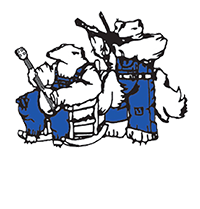On her new album, Modern Appalachia, Sarah Siskind investigates a more multifaceted relationship with not only the region where she grew up, but with herself. As each song digs a little deeper into Sarah’s questions, fears and realizations, the full story reveals that the rawness, earthiness, and spiritual depth of North Carolina has inevitably clothed Siskind. In “Carolina,”, she sings “Who you are isn’t where you’re from/but where you’re from is always close/and when you go digging in that dirt/get ready to find what you fear the most.”
Her love of progressive rock and fusion shine through on this album to create a new incarnation of Appalachian music. The musicians she chose for the album were the perfect vehicle for this distinctive sound with guitar-giant Bill Frisell and luminary Justin Vernon (Bon Iver) both guesting. Daniel Kimbro, Mike Seal, and Jeff Sipe’s (Warren Haynes, Aquarium Rescue Unit, Jimmy Herring) tight but organic soundscape lay a lush bed for Siskind’s direct, story-telling vocal tone.
With Modern Appalachia, Siskind explores her identity outside of the career that she built in Nashville over the past decades. “I moved back to my home state of North Carolina about four and a half years ago,” she explains. “What started as a move to live a simpler life and raise my family among the mountains, soon became a full-blown discovery of self beyond being a musician, but a woman, a mother, and a human.” This branching out in identity ultimately brought Siskind back to center, where she is taking a new look at her native land and admitting how much it has informed her. In the title track, she sings, “It was modern Appalachia/So old, so new/When the sacred met the sorrow I knew it was true…It was modern Appalachia/so ancient-and so free/speaking straight to every color in me.”
Not only has Siskind created an album that takes a magnified look at herself and the place that made her, but she also hopes that the inherent dichotomy of the phrase “Modern Appalachia” will inspire conversation. What does Appalachia mean in current times to those living there, and what does it mean to those living elsewhere? Is it not just a word in a history book, but a living, breathing, and ever-evolving way of life? But, as far as the question “What does Modern Appalachia sound like?,” this rooted but wild 12-song journey may be your answer.
Siskind grew up in a North Carolina house so steeped in music; she claims it as her first language. “I almost find it hard to talk about my music,” laughs Siskind, “speaking is really my second form of communication.” After moving to Nashville at the age of 20, her song “Goodbye Is All We Have” was recorded by Alison Krauss, which led to a job at Big Yellow Dog as a staff writer. Siskind went to have songs recorded by Randy Travis, Wynonna, Point of Grace, Madi Diaz, and countless others. Her music has also found its way onto television, where her songs have been heavily featured on CMT’s’s Nashville, as well as on MTV’s Teen Mom 2, MTV’s Awkward, ABC’s Pretty Little Liars, Lifetime’s Army Wives and HBO’s The Wire. She made her primetime TV debut in 2014, performing Nashville’s hit “A Life That’s Good” from the Ryman stage with the show’s cast and co-writer Ashley Monroe.
But her notoriety as a songwriter has not overshadowed her virtuosity as an artist, with The Huffington Post stating, “Siskind has been compared to Bonnie Raitt and Brandi Carlile, but in my humble opinion, she’s incomparable.” In 2009, Siskind released her album Say It Louder on Thirty Tigers, which met with critical acclaim and won “Americana Album of the Year” at the Nashville Music Awards. Her earlier album Covered, the release of which was derailed due to health issues, was brought back to life in 2014 by Justin Vernon (Bon Iver), who personally sought it out for re-release on his record label Jagjaguwar.
Since then, Sarah has become a regular NPR performer, with features on Tiny Desk concerts, World Cafe with David Dye, All Songs Considered, Song Of The Day, and most recently Mountain Stage. She has toured with Bonnie Raitt, Lee Ann Womack, Paul Brady, Bon Iver (who also famously covered her “Lovin’s For Fools”), and The Swell Season.


